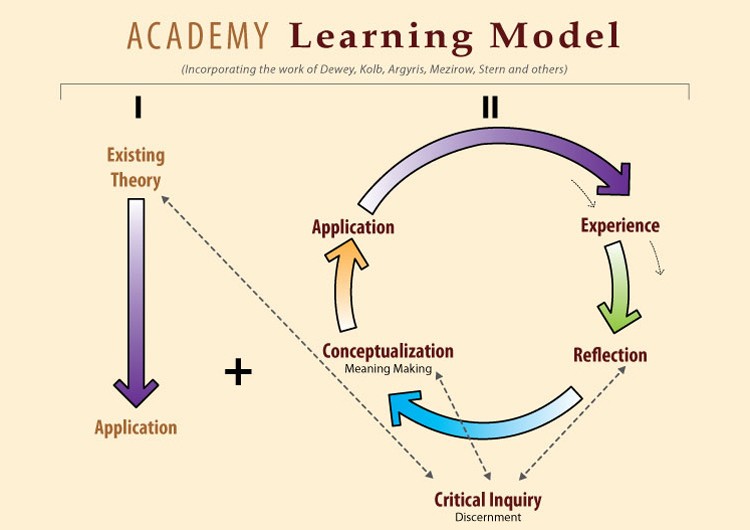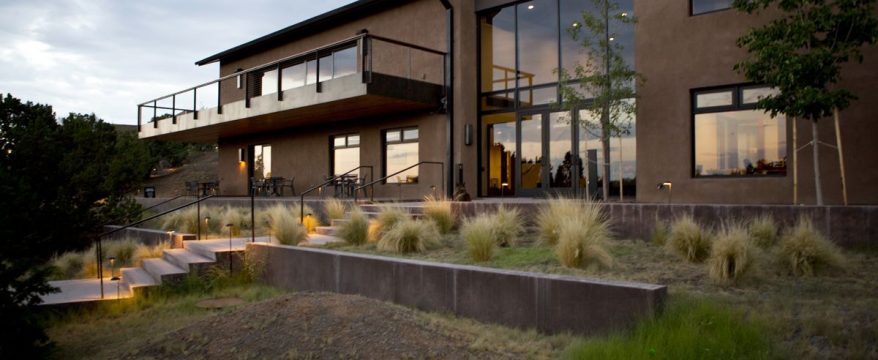Reflection and Emergence
Founder’s Blog Celebrating the Academy for the Love of Learning’s 20th Anniversary
In this series of blog entries, Academy founder Aaron Stern reflects upon the founding impulses of the Academy and shares images of the future – echoing our 20th anniversary theme – Reflection and Emergence.
It was while I was Dean of the American Conservatory of Music, in 1980, that I went to China on a musical mission, got lost in the Ming Tombs and while waiting to be found by our Chinese guides, like a bolt of lightening, I had a clear vision for how I would spend the rest of my life: catalyzing a kind of movement, a wave, that would foster a new view of learning across the US and beyond. The New American School is what I first called it – akin to something like the Bauhaus School, the great wave in architecture.
Within months of my return to the US, I met with Leonard Bernstein and began to dream and conceive of The Academy for the Love of Learning. Lenny mentions those early intentions in a Rolling Stone magazine interview he gave near the end of his life. “I and a musician friend named Aaron Stern have conceived of an institution called the Academy for the Love of Learning” he said. “We haven’t done too much with the idea yet…there will be the overriding goal of teaching teachers to discover their own love of learning. Then the infectious process begins!” Little did I know then that it would take a long time! A 300-year project as a friend of mine likes to say!
During these early days of this nascent Academy, in the mid-late 1980s, I operated peripatetically, testing my ideas and methods in multiple places. At one point, I traveled to Nashville in the summers, where I was asked to serve as Dean of a summer Institute for Teachers, engaging some 800 classroom teachers and administrators each summer in a two-week arts-based experientially oriented professional development summer program. During my last summer there, in one of the first actions that could be called an “Academy program” I utilized Iris Murdoch’s dialog-based book Acastos to bring the group of teachers into a deep-experiential process with teaching artists, exploring love and learning and their interplay. The impact was amazing. In our conversation, the night before he died, Lenny told me what I had done in Nashville that summer was “it,” as he liked to say. I had found my voice in my work and all was on track! He reminded me, as ever, that experience without theory was insufficient – as was true of the reverse, I reminded him, as ever (echoing in short form the essence of our long-time dialogue) that theory without experience was insufficient. Indeed, I brought Lenny back to experience – and he brought me to theory. In Jewish mysticism – which we often explored, he represented Hockmah – knowledge accrued through books, etc. – and I represented Binah – wisdom accrued through experience. It was in fact Lenny who suggested I read Iris Murdoch’s Acastos – and it was I who designed the experiential process through which to engage the participants and bring it alive – a great moment of our collaboration.
For those of you who know the Academy’s learning model, I first developed and began to explore it while I was Dean of the Conservatory in the early 1980s. You can see these two forces of Hockmah and Binah – Theory and Experience – clearly represented on the chart below. On the left side is knowledge the right, experience. On the left – it’s up to the student to read and apply the knowledge gained; on the right, the student experiences something, reflects upon the experience, explores its meaning, tiptoes over to the history/ theory – and then brings it all back to experience, meaning-making and then begins to formulate a point of view and applies it in real life. This is a more complex operation – but one that can and is more likely to lead to permanent change in understanding…knowing…transformation.

Lenny, who once sardonically inscribed a book to me, “experientially yours,” mocking me as a way to challenge my unwavering devotion to experience first in learning, was in truth, profoundly hopeful about my pedagogical impulses and insights. Both a conductor and a composer, Lenny was himself somehow imprisoned by his knowledge and mastery of the music that came before him – history. He spoke often and famously of how his main task, when entering a new composing period, was to try to empty his mind of the music of all of the composers he had been conducting, in an effort to re-find his own voice. Cumulatively, he felt it was less and less likely that this was a possibility for him. In me, and through the work of our then nascent Academy, he felt great hope that a new learning paradigm could emerge. In the last years of his life he told me that he could no longer imagine himself ‘running around the globe waving his arms in the air’ conducting – and wanted instead to turn his attention to composing and to education – our Academy. Easier said than done, unfortunately. His conducting schedule was planned out years in advance and he depended upon that income to live the life to which he had grown accustomed. And, by the end of his life, he felt he had nothing more to say as a composer. He told me this the night before he died.
Though of course, our early conversations centered on music since we were both musicians and my early insights came to me as the Dean of a college of music, Lenny also joined me in recognizing that these insights went far beyond music to life itself. Years later, after I formally established the Academy in 1998, 8 years after Lenny’s death, one of my early Academy colleagues, Marianne Murray, recognized this as well when helping to write an early version of the Academy’s general brochure. “Living and Learning in a New Key” she spontaneously titled it, drawing inspiration from 20th century philosopher Suzanne Langner’s masterful treatise, Philosophy in a New Key.
It was finding and being situated in one’s own voice that was paramount to my approach to pedagogy. I believed then as I do now – that if we learned first through experience– and then found our way to connect our discoveries through experience to theory and history – we could change the course and outcomes of learning. We would be liberated from the unconscious confines of history while remaining informed by it, and all the while, guided by our own inner voices and guidance systems. I believed then as I do now, this was key to the originality we need to solve not only musical problems, but our most intractable problems as human beings. And I believed then, as I do now, that this would lead us to happier, more peaceful lives. Lives filled with creativity, play, meaning and satisfaction, personally and collectively.
Not surprising this emphasis on experience, echoes what the mystics and many philosophers have known throughout the ages – that experience ripens us and alchemizes into wisdom.
There are two seminal quotes that have guided me in my thoughts about pedagogy and inform the Academy’s work – both written by the brilliant dancer/choreographer Martha Graham.
“I believe that we learn by practice. Whether it means to learn to dance by practicing dancing or to learn to live by practicing living, the principles are the same. In each it is the performance of a dedicated set of acts, physical or intellectual, from which comes the shape of achievement, a sense of one’s being, a satisfaction of spirit. One becomes in some areas an athlete of God.”
“There is a vitality, a life force, an energy, a quickening that is translated through you into action, and because there is only one of you in all of time, this expression is unique. And if you block it, it will never exist through any other medium and it will be lost.”
It was these insights and pedagogical understandings that first came to me while Dean of the Conservatory, that inspired and catalyzed my vision while in China and then became the impetus for the conception and birth of the Academy. And it is these insights and pedagogical understandings that remain the ground that the Academy stands on as we look toward the future.
Put simply: As Bernstein also once said, in his own Credo, I, too, believe in people.
I believe that if we connect inwardly with our deepest voices, and our learning is guided and motivated from those deeper places and knowings as human beings – our shared ground of being – we will participate in the world in positive, creative ways that will bring greater degrees of compassion and well being into our lives individually and collectively. And, I believe in Learning – with a capital “L”. As my dear friend and Academy visiting scholar Matthew Fox said to me many years ago – when expressing his enthusiasm for our work – ‘Learning is to education, what Spirituality is to religion. The Academy is a post-religious place, filled with learning and the sacred.’
A 300-year project, indeed!


